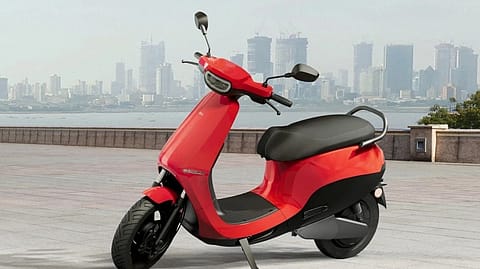EV lobby proposes ₹3,000 crore rehabilitation fund for OEMs
The total amount of subsidies withheld and still due to various electric two-wheeler OEMs amounted to over ₹1,200 crore, claims SMEV

The Society of Manufacturers of Electric Vehicles, an industry body for EV makers in India, has written to the finance ministry proposing the creation of a ₹3,000 crore rehabilitation fund to revive and sustain operations of original equipment manufacturers (OEMs) which have been badly affected by the recent FAME (Faster Adoption of Manufacturing of Electric Vehicles) "subsidy blocks".
SMEV said that the total amount of subsidies withheld and still due to various electric two-wheeler OEMs amounted to over ₹1,200 crore. The industry has been awaiting the funds for over 18 months exclusive of the interest, it said.
"The cumulative effect of the subsidy blockade, the claim on older subsidies and the refusal to allow future sales has been devastating on start-ups and first movers in the EV 2W segment. Many of these companies will not be able to come out of the financial stress caused by these actions," said Sohinder Gill, director general, SMEV.
"In fact, their post-resolution existence is also a matter of time. It is therefore our considered, sincere, suggestion that the Ministry of Finance may consider the Rehabilitation Fund to help the affected companies sustain for the next year or two at least," Gill added.
Due to a series of exacerbating circumstances, the government has on the one hand asked some OEMs to refund monies to customers and on the other demanded the return of earlier subsidies from others, irrespective of the nature of their dispute, the EV lobby said.
The collapse of the subsidy scheme has not only caused operations to stall, and sales to dry up but acute pressure had been caused on dealerships, even customers whose bookings had to be cancelled, the letter said.
"If we add the man-days lost, opportunity loss, market share depletion and the reputational damage collectively the figure would cross the ₹30,000 crore mark on a conservative estimate up to now," it added.
Recommended Stories
According to SMEV, the worst impact has been on the investor community, which has become extremely averse to the sector owing to the frequent inimical actions against OEMs.
Banks too have been unwilling to extend credit as they are suffering collateral damage since companies are unable to service loans under the circumstances, the letter said.
SMEV has proposed to work closely with the Finance Ministry to determine the contours of such a fund, which could be in the shape of a grant; or a subvention scheme that could work as a guarantee mechanism for lenders and could be monitored by a committee.
SMEV said that this proposition will help in both, bailing out highly stressed companies in the EV sector, as well as sending a positive signal to the global investor community about the government's commitment to its national e-mobility charter.
(INR CR)
This comes at a time when the government has reduced the FAME-II subsidy on electric two-wheelers from June 1, 2023. The incentive on electric two-wheelers has been reduced to ₹10,000 per kWh from the existing ₹15,000 per kWh. The cap on incentives for electric two-wheelers will be 15% of the ex-factory prices of vehicles as against 40% earlier. EV sales contributed 8% to the total vehicle retail sales in May, buoyed by a surge in demand for two-wheeler and three-wheeler EVs.
"The reduction in subsidy will have a short-term impact on price competitiveness of some EV brands and may impact sales but in the long term it will push the industry to drive greater cost competitiveness through better products, lower costs and leaner operations," says Rahul Mishra, partner at global management consulting firm Kearney.
"Few years back when subsidy for non Lithium vehicles was withdrawn, the sales had drastically shrunk but soon the market pivoted towards better, energy-efficient EVs. The industry also needs to consider that subsidies are temporary and their long-term strategy and competitiveness need to be resilient to such changes," Mishra adds.